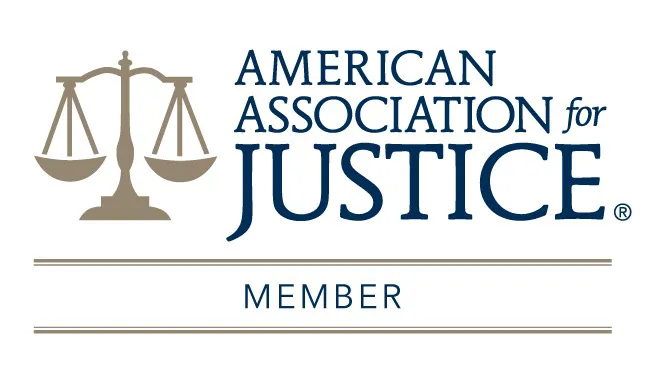Unexpected danger on the roadways can change lives in an instant. In 2021, according to data from the Hawaiʻi State Department of Transportation (HIDOT), our community suffered
84
Traffic Fatalities, including:
8
Alcohol-impaired Driving Fatalities
37
Speeding-related Fatalities
29
Motorcycle Fatalities
22
Pedestrian Fatalities
4
Bicycle Fatalities
In addition, HIDOT reported
451
Serious Injuries
such as brain damage, spinal cord injuries, disability, and worse.
Hawai‘i is a stunningly beautiful place to live and to visit. Yet driving around our state’s roadways can be dangerous. In fact, there has been an increase in traffic-related fatalities in Hawai‘i in recent years.
If you have been injured in a motor vehicle accident on O‘ahu, Maui, Hawai‘i Island, Kaua‘i, Moloka‘i, Lānaʻi, or elsewhere in Hawai‘i, you may be able to file a lawsuit against the at-fault driver and the owner of the vehicle. Through a personal injury claim, you can recover financial compensation for your medical bills, lost wages, pain and suffering, and other losses. Our Hawai‘i personal injury lawyers represent both residents and tourists, helping them recover fair compensation for their injuries.
At Miyashita & O’Steen, we provide skilled, compassionate legal representation to victims of all types of accidents, including motor vehicle accidents, recreational accidents, medical malpractice, work-related injuries, and wrongful death. We’ll fight to help you get maximum compensation for your losses. Reach out to our law offices today to schedule a no-cost, no-obligation consultation with a Hawai‘i car accident attorney.
When Can I File a Lawsuit for a Hawai’i Car Accident?
There are many different reasons why car accidents occur. According to the National Highway Traffic Safety Administration (NHTSA), the single biggest cause of any motor vehicle accident is driver error. This can include things such as:
- Speeding
- Distracted driving
- Failure to yield
- Driving under the influence of alcohol and/or drugs
- Reckless driving
- Driving too fast for conditions
- Driver fatigue
- Unsafe lane changes or turns
- Aggressive driving
Any one of these behaviors can be the basis for a car accident claim.
Typically, personal injury lawsuits are based on a theory of negligence or carelessness. Negligence is the failure to use the level of care that a reasonable person would use in a similar situation. For example, if a reasonable person would obey Hawai‘i’s traffic laws and come to a complete stop at a stop sign, it is negligent to roll through a stop sign.
The injury victim (plaintiff) has the burden of proving that the at-fault driver (defendant) was negligent in some way. This requires the plaintiff to demonstrate four elements:
- Duty: the defendant owed the plaintiff a duty to use reasonable care.
- Breach: the defendant violated that duty in some way.
- Causation: that violation was the direct cause of the accident.
- Damages: the plaintiff suffered losses as a result.
If the plaintiff can prove these four elements, then they will be entitled to recover compensation from the defendant. The at-fault driver’s insurance company usually covers these claims.
Hawai‘i also recognizes the violation of statutory duties as evidence of negligence. If the at-fault driver violates a statute that was designed to protect people and causes the type of harm that the law was designed to prevent, then the violation may be used to establish negligence in a civil case. For example, if a person texts and drives in violation of Hawai‘i law, that violation can be presented to a jury as evidence of negligence. The burden then falls on the defendant to show that they were not negligent.
Personal injury claims can also be based on intentional or reckless conduct. A common example of this type of claim is a drunk driving accident. If you were hurt in a car accident because of someone’s intentional or reckless conduct, you can still file a lawsuit in addition to any criminal charges that the driver may be facing.
Depending on the facts of your case, it may also be possible to pursue a claim against someone other than another driver. For example, if you were injured because of dangerous road conditions, you could potentially sue the government agency or landowner responsible for maintaining that road. If you wrecked your car because of a faulty car part (such as defective brakes), you could file a product liability lawsuit against the manufacturer or seller.
During a free initial consultation with a car accident attorney at Miyashita & O’Steen, you will have the opportunity to tell your story in full. Your attorney will listen carefully, explain your legal rights and options, and provide a general estimate of what your case may be worth.
If you decide to hire Miyashita & O’Steen as your attorneys, we will get to work immediately to start building your case and develop a strategic litigation plan. We will preserve evidence, interview witnesses, and obtain the accident reports. We will also seek out photos and videos of the accident and analyze your medical records and history.
Once our investigation is complete, we will draft an effective demand letter to the at-fault driver’s insurance company. This letter will explain the facts of the case and the legal reasons why the other driver was at fault for the crash. It will then include a demand for compensation (damages).
Insurance companies always perform their own investigation of motor vehicle accidents. They will typically respond to demand letters with a counteroffer, often for far less money than what was requested. Our legal team will continue negotiating with the insurance company until a fair settlement can be achieved.
It is often necessary to file a lawsuit to protect your legal rights, and we will be prepared to take your case to trial. However, a lawsuit does not necessarily mean that your case will go to trial. In fact, a majority of personal injury claims are resolved outside of court. Taking this step is often a way to continue negotiations and seek the justice that you deserve.
Our law firm will aggressively advocate for you throughout the litigation process. If the insurance company won’t offer you fair compensation for your losses, we will take the case to trial to help you get the money that you deserve, achieve the justice that you seek, and be your voice so you can be heard.
Compensation and Settlements in a Hawai‘i Car Accident Case
In most personal injury cases, the plaintiff will be entitled to two types of compensation: economic and non-economic damages. Together, they are referred to as compensatory damages because the purpose is to compensate an accident victim for their injuries. In cases involving intentional or reckless conduct, punitive damages may also be awarded.
Economic damages pay for direct financial losses. These include things like property damage, medical bills, future medical care, lost wages, reduced earning capacity, and out-of-pocket expenses. Economic damages tend to be relatively straightforward to prove because they can be documented through a bill, invoice, statement, or pay stub.
Non-economic damages, also known as general damages, compensate for intangible losses, such as pain and suffering, loss of enjoyment of life, emotional distress, scarring, mental anguish, and disfigurement. These damages are subjective and vary from case to case, unlike economic damages, which have a direct monetary value. Jury instructions on non-economic damages emphasize that there is no fixed standard for determining the amount and that jurors should use their judgment based on the evidence and common sense.
Finally, punitive damages are awarded in more unusual cases where a car accident was caused by intentional or reckless conduct (instead of negligence). For example, if a car were involved in a drag racing incident and caused a crash, punitive damages may be awarded to punish the driver and deter others from engaging in this type of behavior. There is no cap on punitive damages in Hawai‘i.
Insurance companies try to pay out as little as possible on car accident claims. They use a number of different tactics to achieve this goal, such as sending out an adjuster to try to get you to make a statement where you admit fault or pressuring you to accept a lowball settlement offer. You should never talk to an insurance adjuster until you have had a chance to consult with an experienced Hawai‘i car accident attorney.
The best way to get maximum compensation for your injuries is by having legal representation. The insurance companies have their own lawyers and adjusters, so you can level the playing field with an attorney of your own. Our Miyashita & O’Steen personal injury lawyers will fight for your right to full compensation.
Hurt in a Car Accident? We’re Here to Help.
Car accidents can be both physically and emotionally traumatic. In the aftermath, you might not know what to do or who you can trust to be on your side. Our law firm will fight for your right to full compensation.
Based in Honolulu, Miyashita & O’Steen represents injury victims throughout Hawai‘i. We handle all personal injury cases on a contingency fee basis, which means that you’ll never pay a fee unless we recover money for you. To learn more or to schedule a free initial consultation with a Miyashita & O’Steen car accident attorney, give our law offices a call at 808-909-8770 or fill out our online contact form.
Is Hawai‘i a No-Fault State?
Hawai‘i is considered a no-fault state. Drivers in Hawai‘i are required to have personal injury protection (PIP) through their car insurance policy. PIP will pay for medical expenses after a motor vehicle accident, regardless of who was at fault for the accident. The goal of the no-fault system is to ensure that individuals injured in a car accident receive coverage for certain losses promptly, without the need for litigation.
It is still possible to file a personal injury lawsuit against another driver if the accident: (1) caused an injury that results in $5,000 or more of PIP benefits; (2) caused serious or permanent injuries; or (3) caused a death. Our Miyashita & O’Steen car accident attorneys can help you determine if you are able to file a lawsuit for your car accident case. Call Miyashita & O’Steen today to schedule a free initial consultation.
How Long Do I Have to File a Lawsuit?
In Hawai‘i, most personal injury claims must be filed within 2 years of the date of the accident. This is known as the statute of limitations. While there are some exceptions to this rule, you generally have to file any car accident lawsuit within 2 years. If you fail to do so, your case will likely be dismissed as untimely should you file a lawsuit after the statute of limitations expires.
The seasoned car accident lawyers of Miyashita & O’Steen always keep the statute of limitations in mind when representing clients in personal injury cases. Contact our law offices today for a free initial consultation.





